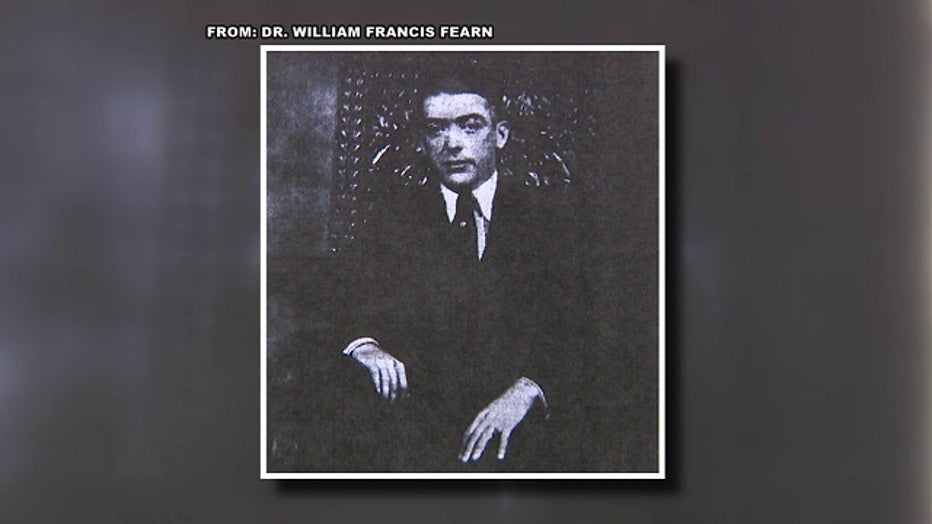Friends and family pay their respects to WWI veteran

Friends and family pay their respects to WWI veteran
FOX 29's Bruce Gordon has more on a memorial service held to honor a solider who was killed during World War I.
WEST PHILADELPHIA - A memorial service was held Monday to honor Sgt. Thomas Fearn, a soldier who was killed in action in WWI. His body laid in an unmarked grave until his relatives were able to locate the grave this year and place a marker.
By the time they gathered at the Old Cathedral Cemetery, Thomas Joseph Fearn Jr. had been dead for more than a century, but for his ancestors, it’s never too late to pay your respects.
“Great. It was a search of five years and it was fruitful. It was a warm feeling," Dr. William Francis Fearn told FOX 29's Bruce Gordon.

Thomas Fearn was a 26-year-old Philadelphian, a newly minted sergeant, who was part of the scantily-trained division of American Expeditionary Forces sent into the Meuse Argonne Offensive in Sept. 1918. It was the last great battle of WWI and it was brutal combat.
“So rather than learning lessons in a consequence-free training environment, the Germans made the infantrymen pay for their lack of experience," Lt. Col. Ryan Liebhaber explained.
Fearn was mortally wounded on the first day of battle. He died the next day, but the mystery was whatever became of his remains.
Dr. William Francis Fearn, a South Jersey doctor and the son of Fearn’s younger cousin, began to search without much luck. Then, Nancy Schaff, who heads up the descendent group of Fearn’s old unit the 314th, did some digging of her own and found an Inquirer newspaper obituary showing Fearn’s remains had come back from France three years after his death and were buried at Old Cathedral in 1921.
"We want people today and all generations to understand that we never forget our veterans. It doesn’t matter if it was 100 years ago or if it was yesterday," Schaff explained.
Still, the mystery wasn’t completely solved.
“We wandered around here looking for his grave and couldn’t find it," Dr. Fearn said
Finally, with help from the cemetery, Dr. Fearn found the gravesite and bought a gravestone for the memorial service.
101 years after Thomas Joseph Fearn’s death, a proper sendoff from those who never knew him but valued his sacrifice.
“I know where to come on Memorial Day and other times, Christmas-time to honor his memory," Dr. Fearn said.

